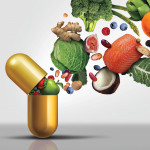It’s become accepted wisdom that adults need to drink at least eight glasses of water each day, and some people won’t leave home without a water bottle. But individual fluid needs vary widely, and this broad recommendation is not supported by much scientific evidence.
There’s no question that adequate hydration contributes to good health. Sufficient fluid intake is important for digestion, waste removal, temperature regulation and maintaining balanced blood chemistry. Inadequate hydration can cause fatigue, light-headedness, headaches and a rapid heartbeat as well as a dry mouth, eyes and skin. People who don’t get enough fluids urinate less often, and prolonged dehydration can lead to kidney problems.
A recent study by researchers at the National Institutes of Health found that middle-aged adults who stay well hydrated appear to be healthier and live longer than those who do not consume enough fluids. Specifically, people with higher blood sodium levels—an indicator of inadequate fluid intake—were more likely to develop chronic conditions, showed signs of advanced biological aging and were more likely to die at a younger age. “The results suggest that proper hydration may slow down aging and prolong a disease-free life,” says lead study author Natalia Dmitrieva, PhD.
But how much water is enough? According to the National Academy of Medicine, women who are adequately hydrated consume an average of 91 ounces (about 11 cups), and adequately hydrated consume men an average of 125 ounces (about 16 cups) of water daily. This includes other beverages and fluid in foods such as fruits and vegetables. Caffeinated beverages, such as coffee and tea, contribute to the total, despite their diuretic effect (causing increased urination).
However, individual fluid needs depend on a variety of factors, including physical activity and climate. Athletes and people who live and work in hot climates, for example, sweat more and need to replace more lost fluid. People who are pregnant or breastfeeding have higher fluid requirements. Vomiting or diarrhea can lead to dehydration and electrolyte loss, requiring prompt fluid replacement; this is especially dangerous for infants and young children. Diabetes can lead to excessive fluid loss due to increased urination. On the other hand, some people with conditions such as congestive heart failure retain fluid and may need to limit their intake.
Most healthy people can meet their daily fluid needs by drinking when they are thirsty. Drinking too much water is seldom a problem. “[W]e concluded that on a daily basis, people get adequate amounts of water from normal drinking behavior—consumption of beverages at meals and in other social situations—and by letting their thirst guide them,” says Lawrence Appel, MD, MPH, of Johns Hopkins University, who coauthored the National Academy of Medicine report.







Comments
Comments